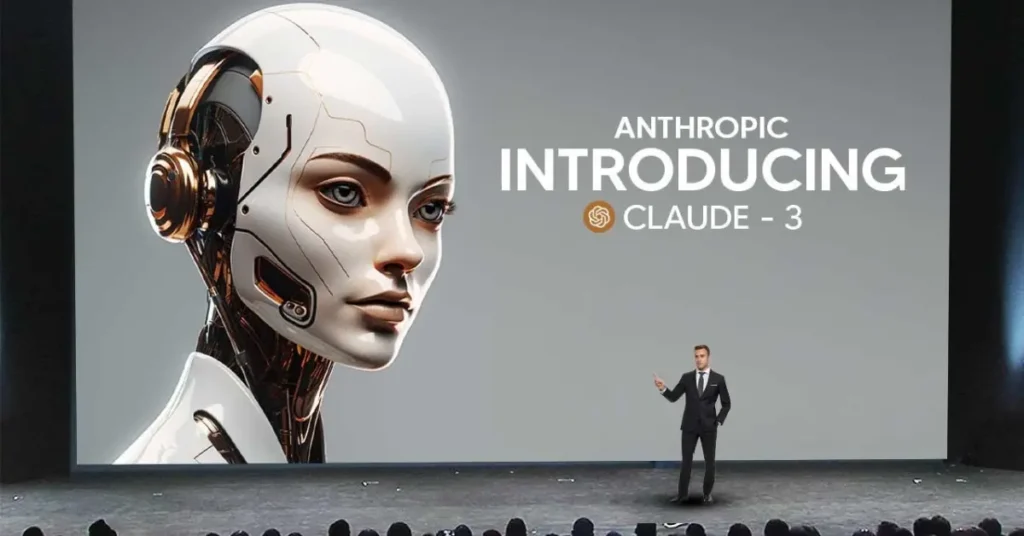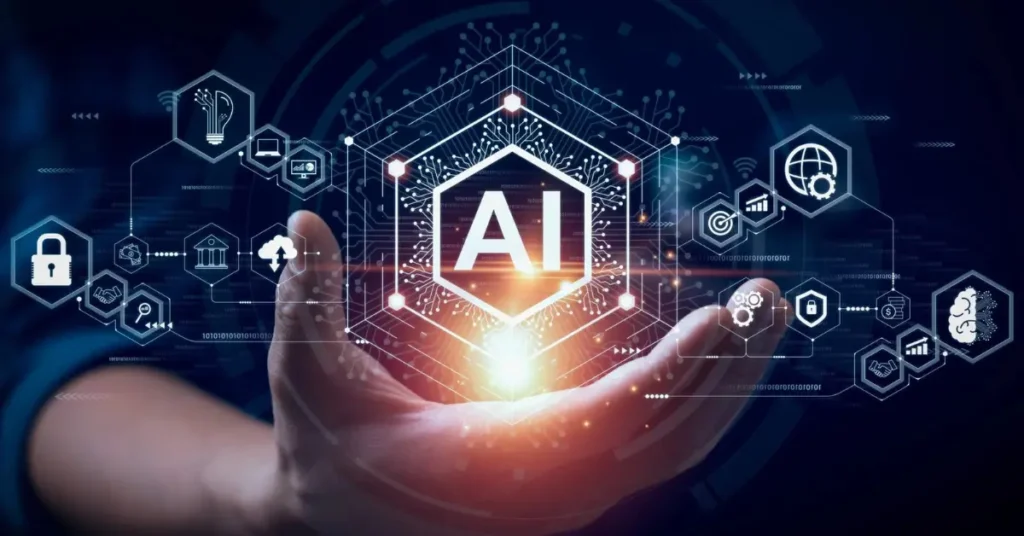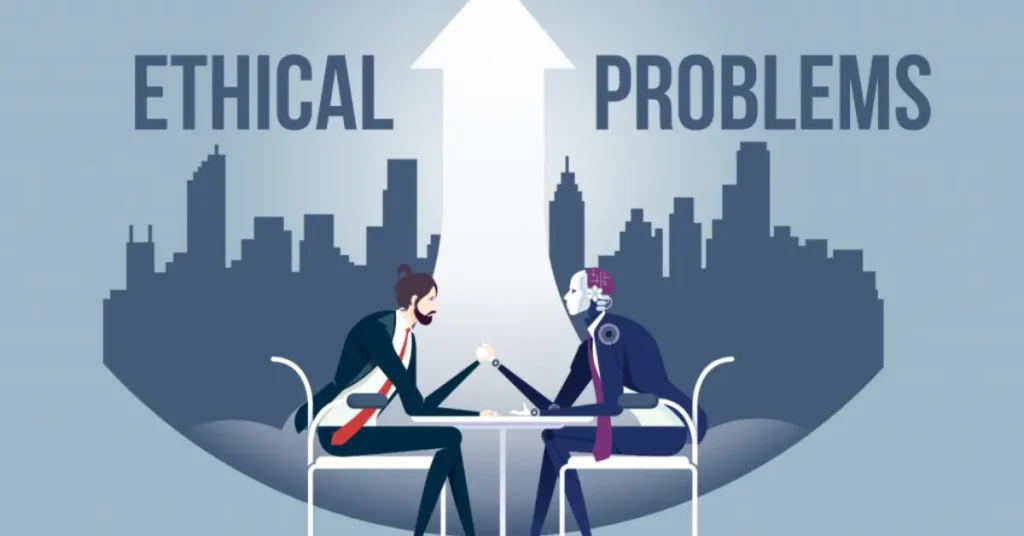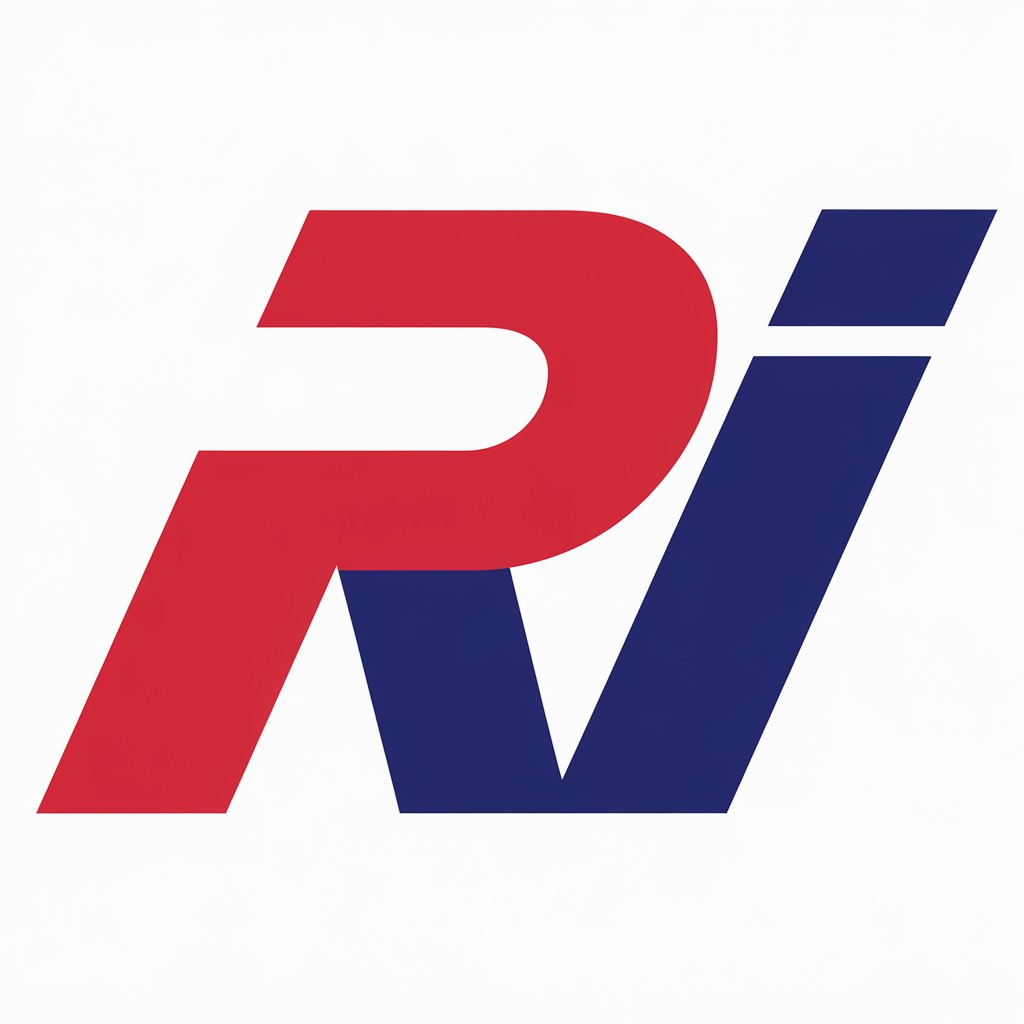Artificial intelligence (AI) is moving faster than ever, with massive advancements taking place across the tech world. Yet, as AI continues to revolutionize industries. There’s a growing need to ensure that these systems are developed safely, ethically, and with human values at the forefront. One company that has made it its mission to balance innovation and safety is Anthropic.
Founded in 2021 by former OpenAI employees. Anthropic is pushing the boundaries of AI research with a unique focus on safety. This approach sets it apart from other AI companies and has caught the attention of major investors, including Amazon and Google. In this article, we’ll dive deep into Anthropic’s history. Its groundbreaking AI models like Claude, and its vision for the future of AI.
What is Anthropic?
A New Chapter in AI Research
Anthropic is a public-benefit corporation (PBC) founded by Dario Amodei and Daniela Amodei, along with a team of former OpenAI researchers. They starts the company with one overarching goal: to create AI systems. That are not only advance but also safe and reliable. The decision to form Anthropic came after differences in vision with their former employer. OpenAI, particularly around the direction AI safety research should take.
The Amodei Siblings: The Minds Behind Anthropic
The Amodei siblings—Dario and Daniela—are at the heart of Anthropic. Before founding the company, Dario Amodei served as OpenAI’s Vice President of Research and made significant contributions to the company’s early success. Meanwhile, Daniela Amodei worked on policy and safety aspects, and together, they envisioned a new type of AI organization focused on long-term safety.
Their departure from OpenAI stemmed from a shared belief that AI’s rapid progress could lead to serious safety concerns. By founding Anthropic, the Amodeis hoped to tackle these issues head-on while still pushing AI technology forward.
Anthropic’s AI Models: Claude

Introducing Claude: Anthropic’s Flagship AI
One of the most significant achievements of Anthropic is the creation of Claude, a family of large language models (LLMs) designed to rival other AI systems like ChatGPT by OpenAI and Gemini by Google.
The Claude AI series is name after Claude Shannon, the father of information theory, symbolizing the deep-rooted scientific principles behind Anthropic’s AI research.
Claude AI 1-3: Evolution of a Powerful Model
Claude 1 was the first version of the model, introduced in early 2023. Since then, Claude 2 and Claude 3 have been release, each more powerful and efficient than its predecessor. Here’s a breakdown of the major releases:
| Model | Key Features | Release Date |
| Claude 1 | Initial version with basic safety features | March 2023 |
| Claude 2 | Improved safety measures and public accessibility | July 2023 |
| Claude 3 | Introduced advanced features and image input capability | March 2024 |
Claude 2 introduced new functionalities, making it more accessible for a wider audience. However, Claude 3 took things a step further, offering three distinct models—Opus, Sonnet, and Haiku—tailored for different user needs.
- Opus: The largest and most capable model, surpassing GPT-4 and Gemini Ultra in terms of performance.
- Sonnet: A medium-sized model optimized for a variety of applications.
- Haiku: A smaller, lightweight model focused on efficiency.
Claude vs ChatGPT: What Sets Them Apart?
When comparing Claude AI with OpenAI’s ChatGPT, a few key differences come to light:
- Claude’s Constitutional AI: Unlike ChatGPT, Claude uses a Constitutional AI framework to ensure its outputs align with ethical guidelines and human values, such as harmlessness, helpfulness, and honesty.
- Claude’s Safety Features: Claude AI is designed with built-in safeguards to avoid generating harmful or biased content. This focus on safety makes it a preferred option for applications where AI ethics are a priority.
Claude’s Constitutional AI: A Deeper Dive
The Constitutional AI framework is one of Claude’s defining features. This system involves setting up a set of predefined rules or a “constitution” to guide the AI’s behavior. For example, Claude will prioritize responses that encourage freedom, equality, and respect for human dignity, following guidelines inspired by documents like the Universal Declaration of Human Rights.
The Heart of Anthropic: AI Safety and Reliability

The Importance of AI Safety
AI systems are becoming increasingly powerful, but with that power comes the potential for unintended consequences. That’s why Anthropic places such a strong emphasis on AI safety.
Their research aims to ensure that AI behaves in ways that align with human values, and they focus on identifying and addressing risks before they become serious issues. One of the key ways they approach this challenge is through interpretability research. This research helps Anthropic identify and understand the internal workings of their models, making it easier to adjust and control their behavior.
Why is AI Safety Important?
The Anthropic Principle refers to the idea that certain features of the universe are necessary for the existence of human life. When applied to AI, it suggests that AI systems must be designed with humanity in mind, ensuring that their actions are aligned with our safety and well-being. This concept influences Anthropic’s research, shaping their AI models to prioritize human-centered values.
Amazon and Google: Investing in Anthropic’s Vision
Anthropic’s Major Backers
In 2023, Amazon and Google made significant investments in Anthropic, signaling their confidence in the company’s ability to lead the charge in AI safety. Amazon pledged up to $4 billion, with $2.75 billion already invested by March 2024. As part of this deal, Anthropic will use Amazon Web Services (AWS) as its primary cloud provider and integrate its models into the AWS ecosystem.
Google also committed to $2 billion in funding, further cementing Anthropic’s standing as a major player in the AI field. These investments allow Anthropic to expand its research, recruit top talent, and develop its models, like Claude AI, with even more resources.
Legal and Ethical Challenges Faced by Anthropic

Trademark Disputes and Copyright Lawsuits
Despite its growing success, Anthropic is not without its challenges. In 2023, Anthropic faced a trademark dispute with Anthrop LLC, a Texas-based company, over the use of the name “Anthropic A.I.”. This lawsuit was ultimately settled, but it highlighted the challenges that come with branding in the rapidly evolving AI space.
Another significant issue came in October 2023. When music publishers sued Anthropic for allegedly using copyrighted song lyrics in Claude’s responses. They claimed that Claude had generated song lyrics without permission, including works by artists like Katy Perry and Gloria Gaynor. The lawsuit sought up to $150,000 for each instance of infringement.
How These Challenges Affect Anthropic
While these legal battles present hurdles, they also highlight the legal gray areas surrounding AI-generated content. As AI systems like Claude evolve, it’s becoming clear that regulations around. AI content creation will need to be updated to reflect the unique challenges posed by this new technology.
Competitive Landscape: How Does Anthropic Stack Up?
Claude vs. ChatGPT: The AI Showdown
With Claude AI now on the scene, Anthropic is positioned as a key competitor to OpenAI and Google. While ChatGPT remains one of the most popular AI systems, Claude‘s focus on safety and ethical guidelines sets it apart from its rivals.
Both models are incredibly capable, but Claude’s Constitutional AI gives it an edge in applications where ethical considerations are paramount. In the future, we may see both companies push each other to improve safety features, driving innovation in the AI field.
The Future of Anthropic and AI
What’s Next for Anthropics?
Looking ahead, Anthropic’s future seems promising. With the support of Amazon and Google, the company has the resources to continue developing Claude AI and expanding its offerings. The next iteration of Claude, possibly Claude 4, could introduce even more advanced features. Such as better image recognition and improved human-AI interaction capabilities.
AI Safety and Ethical Innovation
As AI technology becomes more integrated into everyday life, the need for safe, ethical AI systems will only grow. Anthropic’s continued research into AI safety and
interpretability will be critical in ensuring that the technology remains beneficial and safe for everyone.
FAQs
Here are concise answers to your questions:
What is the meaning of the word Anthropic?
“Anthropic” relates to human beings or human existence. It’s deriver from the Greek word anthropos, meaning “human.”
What does Anthropic do?
Anthropic is an AI research company focuses on developing safe and reliable artificial intelligence systems. Their main product is Claude AI, a series of language models designed with safety guidelines to align AI behavior with human values.
Is Anthropic better than OpenAI?
Whether Anthropic is better than OpenAI depends on the specific application. Anthropic prioritizes AI safety, while OpenAI is more widely recognized for its general-purpose models like ChatGPT. Both companies focus on advancing AI, but Anthropic has a unique focus on AI safety and human-centered principles.
Who owns Anthropic AI?
Anthropic AI is a private company founded by former OpenAI employees, including Dario Amodei and Daniela Amodei. Major investors include Amazon and Google.
Who owns ChatGPT?
ChatGPT is owned by OpenAI, a company originally founded by Elon Musk, Sam Altman, and others. It operates under a hybrid model, with both for-profit and nonprofit entities.
How is Anthropic different from ChatGPT?
Anthropic focuses on creating safe, interpretable AI systems, whereas ChatGPT (developed by OpenAI) is a general-purpose conversational AI. Anthropic’s models, like Claude, emphasize AI safety and ethical alignment, while ChatGPT is known for its broad capabilities without the same emphasis on safety protocols.
Conclusion
In a world where AI is becoming increasingly powerful, Anthropic’s commitment to safety, reliability. And human-centered values is more important than ever. As Claude AI continues to evolve, it stands as a beacon for the future of AI—one. That is designed not only to be advanced but also to be responsible. For anyone interested in the future of technology, Anthropic’s research is one to watch closely.
